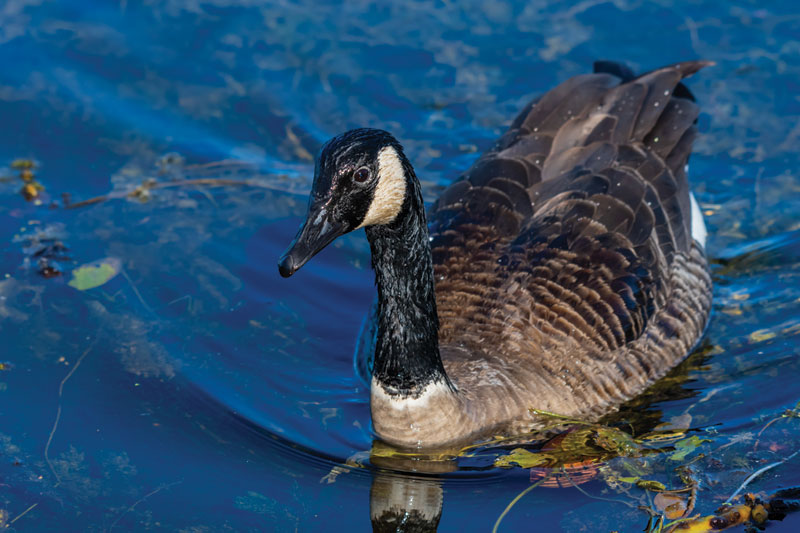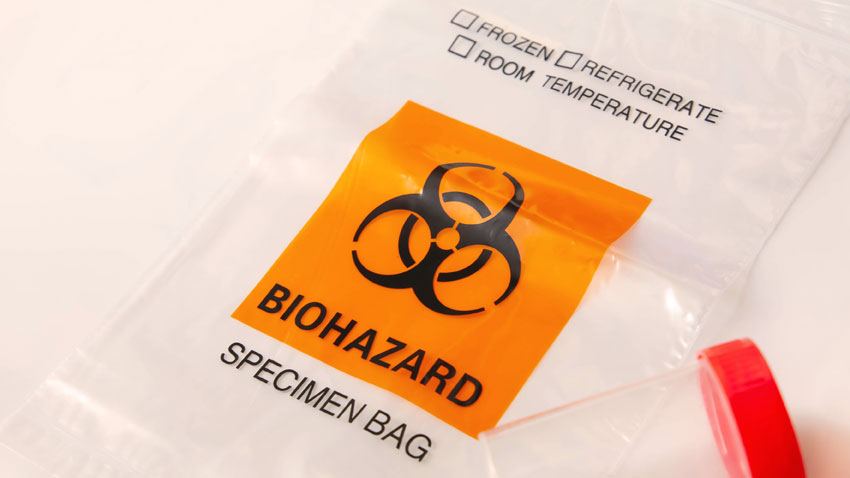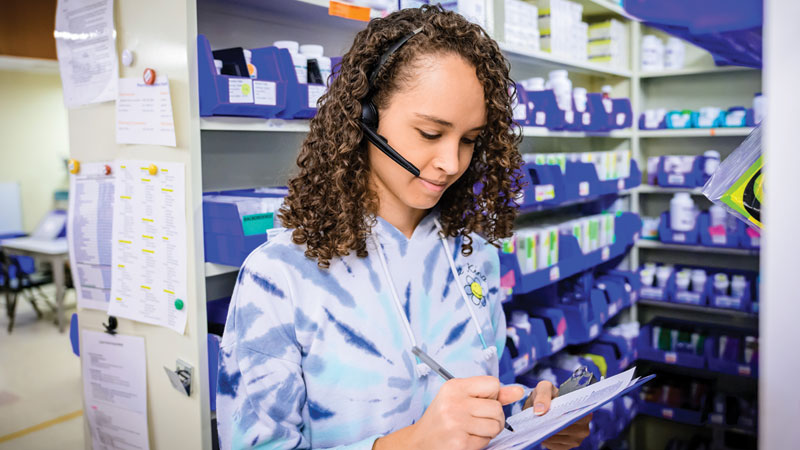Dr. Marrow is a clinical assistant professor in the zoological medicine service.
Tell us about your background.
I earned my DVM from the University of Illinois in 2007 with the goal of becoming a boarded specialist in zoo medicine. After veterinary school, I completed internships in small animal medicine and surgery at VCA hospitals in the Chicago area and at Kansas State University’s Veterinary Teaching Hospital. I completed a residency in zoological medicine at the National Zoo in Washington, D.C., and became a Diplomate of the American College of Zoological Medicine in 2015.
I have spent the past 10 years working with wild animals in managed care in zoos in Michigan and Texas.
What draws you to zoological medicine?
What I love about zoological medicine is that every day and every case is different. You can see a rhinoceros beetle and a rhinoceros in the same day.
Another huge highlight is being able to apply what we learn in veterinary medicine from companion and food animal species to expand the veterinary care and well-being of wild animals in managed care.
Tell us about a favorite case of yours.
I am always amazed by the resiliency of our patients. I recently cared for an endangered Attwater’s prairie chicken that broke her leg after being released at the National Attwater Prairie Chicken Wildlife Refuge in Eagle Lake, Texas.
Her leg identification band was caught in something, crushing the bone of her leg. She was able to evade recapture with the broken leg for about a week before the US Fish and Wildlife Service team was able to bring her in for medical care.
Unfortunately, due to her injury, she was not able to be returned to the wild, but in captivity she has raised multiple clutches of chicks that have been released into the wild.
What are your special interests?
As a zoological species veterinarian, I am interested in everything. Specifically I am interested in advancing veterinary medicine for our zoological species. This includes things we perhaps take for granted from domestic species or even from human medicine, such as investigating drug dosing and medication metabolism, improving patient well-being and outcomes, and using minimally invasive techniques to speed the return to normal function of wild animals in managed care.




